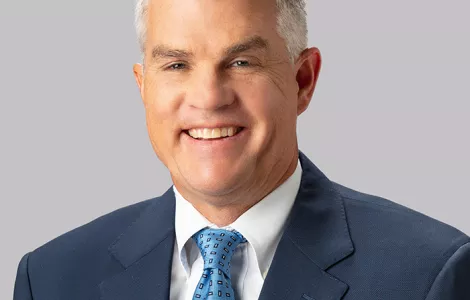Event cancellation insurance is a specialized insurance that provides financial coverage for organizations if they must cancel, postpone, abandon or relocate an event. It is essential for organizations hosting trade shows, conferences, concerts, festivals, celebrations or sporting events to maintain event cancellation insurance to improve their chances of recovering their losses if they cannot hold an event.
Obtaining full insurance coverage is often impossible under the “inability” definitions in these policies, which mean either a “physical inability” (the facility is no longer operational) and/or a “legal inability” (an ordinance restricts access to the facility or the event's occurrence violates civil or criminal laws).
Here are some important considerations if you purchase event cancellation insurance to maximize your potential coverage:
1. Purchase event cancellation insurance well in advance of the event, guaranteeing potential coverage if needed. You may purchase policies for recurring events, and multiple events can be covered under the same policy. Organizations should purchase event cancellation policies separately from their general liability (CGL) or property policies, as courts generally do not recognize event cancellation losses claimed under a CGL policy.
2. Carefully examine your policy for notice and cancellation timing. Policies contain specific provisions for notice and cancellation. If you cancel an event too soon, the adjuster may push back, asking the organization to wait longer to cancel or encourage an enforced reduced attendance claim. Enforced reduced attendance means that some potential attendees could attend the event. Insurers prefer enforced reduced attendance claims because they offer less coverage, but organizations may counter-argue that they purchased insurance for the event’s projected attendance. All policies require the insurer to submit a notice of loss within a specific number of days following a cancellation or postponement decision.
3. Budgeting and Accounting. Organizations should submit a budget to the insurer that covers all event expenses, including the event’s location, frequency, sponsors, vendors and booths. If the insured does not submit a budget, the insurers will consider historical pick-up reports from prior events, such as amount received from sponsors and attendees, and when cancellation occurred.
If the budget is lower than the claim amount, the insurer may deem you “underinsured” and will not cover all the expenses requested. Thus, it is best to submit a higher budget and claim less. Ensure the budget contains specific line items so the insurer can reference these items in the contract when evaluating the claim. Organizations should be prepared to submit records of attendee and exhibitor cancellations, communications regarding those cancellations and payment records for advertising, speakers, contractors and sponsors.
4. Outside Contractors. Organizations must be cautious about how they work with outside vendors, including hotels and the event location. Ideally, do not pay these outside vendors prior to filing a claim. Paying vendors signals the event can proceed. Insist on a provision allowing the organization to terminate hotel and vendor contracts without liability if the underlying event is canceled.
5. Key Exclusions. Following the COVID-19 pandemic, many policies contain a communicable disease exclusion, which courts have interpreted applies only if the World Health Organization (WHO) or government agency declares the communicable disease an epidemic or pandemic.[ii]
Most policies also contain a war exclusion.[iii] For example, following the Sept. 11, 2001, terrorist attacks, many organizations that had events scheduled shortly thereafter were unable to recover insurance, because the event’s cancellation was not beyond the insured’s control and the attacks were excluded as an act of war.[iv]
Legal counsel can help you identify policy exclusions you should be aware of to determine whether you qualify for indemnification and can assist with the notice requirements and proper documentation to submit a claim to the insurer.
[ii] Radiological Soc'y of N. Am., Inc. v. Those Certain Underwriters at Lloyd's of London, No. 21 C 1265, 2021 WL 2853360 (N.D. Ill. July 8, 2021), appeal dismissed, No. 21-2455, 2021 WL 6841553 (7th Cir. Oct. 13, 2021).
[iii] See Whitman, supra note 2.
[iv] Id; see also Info Management Network v. Certain Underwriters at Lloyd’s, 2004 NYLJ Lexis 4607, at *1-2 (N.Y. Oct. 15, 2004).
Editor's note: Sara Zeimer, an associate with Keller and Heckman LLP, contributed to this article. She advises clients on litigation matters in multiple areas, including toxic torts, pharmaceuticals, product liability and environmental actions. She represents clients, from emerging start-ups to Fortune 500 companies, before state and federal courts.
Homepage
Featured News
Apr 23, 2024
To send in your exhibit or show photos, please contact: news@tsnn.com
Partner Voices

Overview:
The award-winning Orange County Convention Center (OCCC) goes the extra mile to make every day extraordinary by offering customer service excellence and industry-leading partnerships. From their dedicated in-house Rigging team to their robust Exhibitor Services, The Center of Hospitality brings your imagination to life by helping you host unforgettable meetings and events. With more than 2 million square feet of exhibit space, world-class services and a dream destination, we are committed to making even the most ambitious conventions a reality.
In October 2023, the Orange County Board of County Commissioners voted to approve allocating Tourist Development Tax funding for the $560 million Phase 5A completion of the OCCC. The Convention Way Grand Concourse project will include enhancements to the North-South Building, featuring an additional 60,000 square feet of meeting space, an 80,000- square-foot ballroom and new entry to the North-South Building along Convention Way.
“We are thrilled to begin work on completing our North-South Building which will allow us to meet the growing needs of our clients,” said OCCC Executive Director Mark Tester. “As an economic driver for the community, this project will provide the Center with connectivity and meeting space to host more events and continue to infuse the local economy with new money and expanding business opportunities.”
Amenities:
The Center of Hospitality goes above and beyond by offering world-class customer service and industry-leading partnerships. From the largest convention center Wi-Fi network to custom LAN/WAN design, the Center takes pride in enhancing exhibitor and customer experience.
The OCCC is the exclusive provider of electricity (24-hour power at no additional cost), aerial rigging and lighting, water, natural gas and propane, compressed air, and cable TV services. Convenience
The Center is at the epicenter of the destination, with an abundance of hotels, restaurants, and attractions within walking distance. Pedestrian bridges connect both buildings to more than 5,200 rooms and is within a 15-minute drive from the Orlando International Airport. The convenience of the location goes hand-in-hand with top notch service to help meet an event’s every need.
Gold Key Members
The OCCC’s Gold Key Members represent the best of the best when it comes to exceptional service and exclusive benefits for clients, exhibitors and guests. The Center’s Gold Key memberships with Universal Orlando Resort, SeaWorld Orlando and Walt Disney World greatly enhance meeting planner and attendee experiences offering world-renowned venues, immersive experiences and creative resources for their events.
OCCC Events:
This fiscal year, the OCCC is projected to host 168 events, 1.7 million attendees, and $2.9 billion in economic impact.
The Center’s top five events during their 2022-2023 fiscal year included:
AAU Jr. National Volleyball Championships 2023
200,000 Attendees
$257 Million in Economic Impact
MEGACON 2023
160,000 Attendees
$205 Million in Economic Impact
Open Championship Series 2023
69,500 Attendees
$89 Million in Economic Impact
Sunshine Classic 2023
42,000 Attendees
$54 Million in Economic Impact
Premiere Orlando 2023
42,000 Attendees
$108 Million in Economic Impact


















